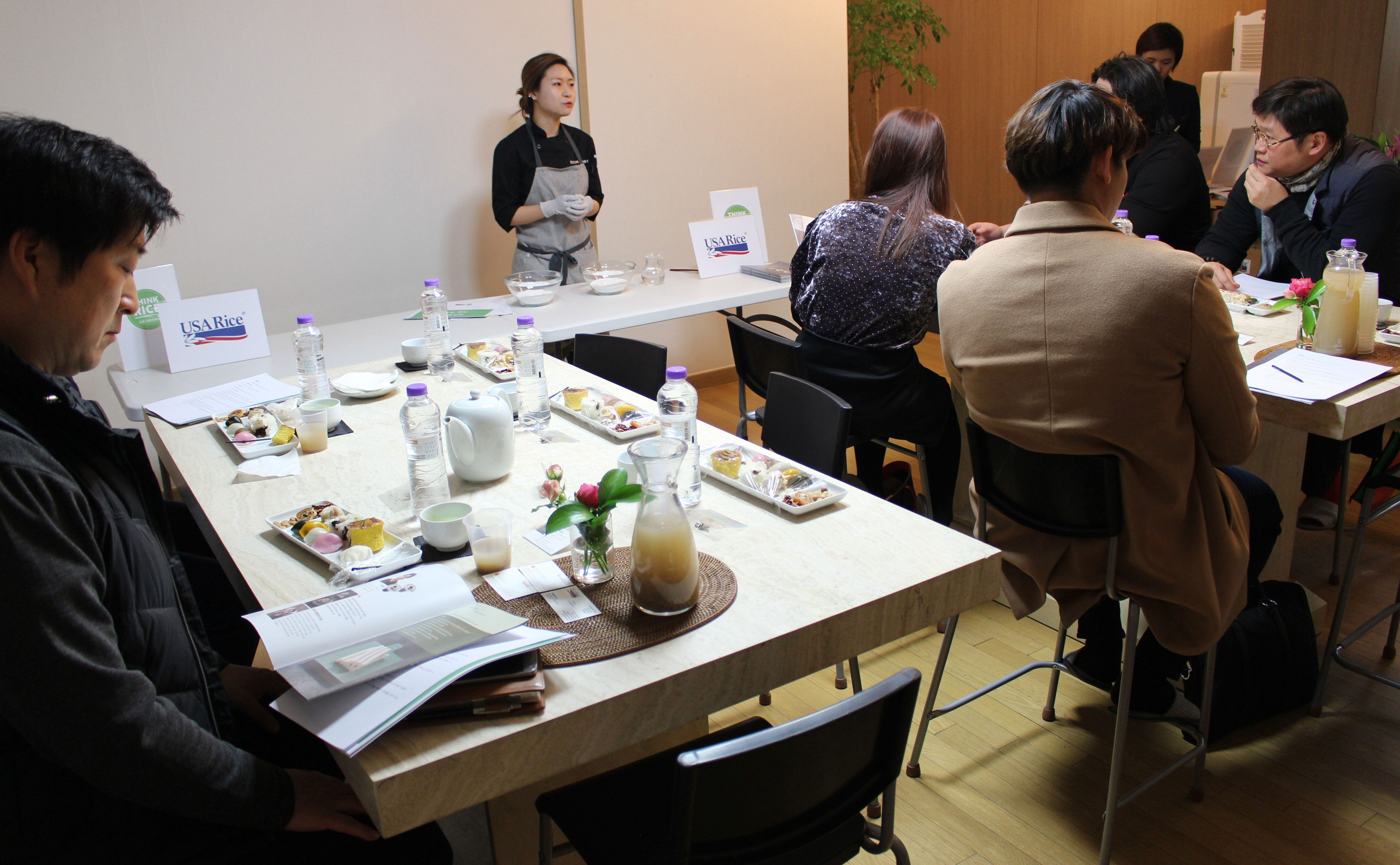 USA Rice menu development seminar in Korea last December
USA Rice menu development seminar in Korea last December
Jan 26, 2018
WASHINGTON, DC – The U.S. and Korean governments have begun discussions to modernize the free trade agreement between the two countries which is commonly known as KORUS. Rice was removed from the original KORUS agreement, which took effect in 2012.
"Rice was excluded from KORUS at the end of the negotiations which was a great disappointment," said USA Rice COO Bob Cummings. "The KORUS modernization discussions may offer an opportunity to address some important market access issues for U.S. rice, and we are coordinating with U.S. trade officials now about how best to do this."
Korea put in place a new import regime for rice in 2015 based on a large tariff rate quota (TRQ) available to all members of the World Trade Organization (WTO). Imports within the TRQ are subject to a low import duty while imports outside the TRQ face very high and prohibitive tariffs.
"The new regime did two major things that were steps backward -- it removed the existing country specific quota for U.S. rice, and removed the guarantee that 30 percent of the rice that Korea imported would reach consumers in the form of table rice or fully milled rice. The new regime effectively reduced the quantity and quality of our access," said Cummings.
“Access to the table rice market is critical for us to effectively promote U.S. rice and establish demand among Korean consumers,” explained Sarah Moran, USA Rice vice president of international. “For the last three years, the U.S. has had a healthy share of the greater than 400,000 metric ton Korean import market, but the system is wildly unpredictable.”
Five WTO member countries, including the United States, have objected to the 2015 rice scheme, referred to as rice tariffication, meaning that Korea cannot officially notify it to the WTO and have it adopted by the world body.
"We are looking to restore guaranteed access for table rice and obtain quantity assurances for U.S. rice in Korea where there is substantial government intervention in the rice market. We will continue to utilize all avenues to advance our market open objectives," concluded Cummings.
Yesterday, the U.S. Trade Representative announced that the next round of talks on KORUS modernization will be held January 31-February 1 in Seoul.